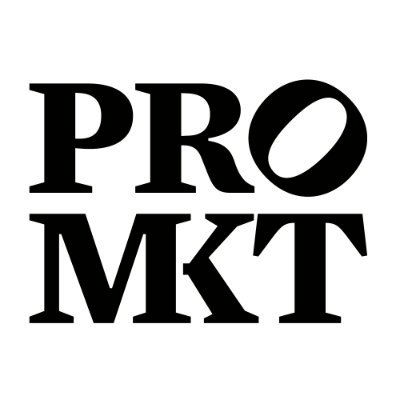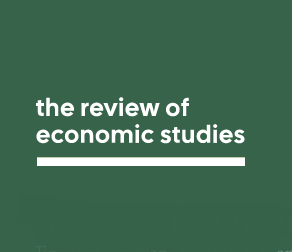
Kyle Herkenhoff
@KyleHerkenhoff
Followers
2K
Following
106
Media
2
Statuses
77
I am an associate professor at the University of Minnesota and visiting scholar at the Minneapolis Fed. I completed my PhD at UCLA. I also love sports.
US/Brazil
Joined January 2021
“When a two-firm town turns into a one-firm town because of a merger, monopsony power intensifies, wages are further depressed and workers are harmed.” @KyleHerkenhoff. Read more in HHEI's annual report: https://t.co/QmvbTshPuz
0
2
24
reposting this (as I forgot to do so back then)... I learned a lot writing this paper: 1) how household heterogeneity shapes aggregate trade, its responses, and the gains from trade 2) When heterogeneity matters (or not) and the role of market incompleteness and inefficiency
A model in which household heterogeneity is induced via incomplete markets, resulting in heterogenous price elasticities — implying rich and poor households experience different gains from trade, from @tradewartracker
https://t.co/IAPpaiQ7xT
2
30
105
Send us your best papers on "Macro Fluctuations with Micro Frictions"* * need not contain fluctuations or frictions
📢We are now open for submissions (until Feb 28) to the 30+ workshops of the @bse_barcelona #SummerForum "Macro Fluctuations with Micro Frictions," organized by @jandres_blanco @jan_eeckhout @Simon_Mongey and I, will happen on June 25-26 https://t.co/CTjNcPesqZ…
#EconTwitte
3
4
62
.@KyleHerkenhoff and @Simon_Mongey use economic modeling to show that the stricter 2023 Guidelines will improve worker welfare and that even tighter thresholds can be applied to labor markets to amplify worker welfare gains from antitrust policy.
promarket.org
Stricter merger policy guidelines will increase competition, leading to higher wages and welfare for workers, writes Kyle Herkenhoff and Simon Mongey. The authors use economic modeling to show that...
0
7
10
1/5: Expecting a child is great for spamming out NBER Working Papers. This week its a short theory paper that shows cleanly how progressive taxes make hiring more expensive on the margin, which, if internalized by firms may result in under-hiring.
Income tax progressivity makes hiring more expensive on the margin. In a monopsony economy, wages and employment fall, especially at high wage firms, from @David_W_Berger, @KyleHerkenhoff, @Simon_Mongey, and Negin Mousavi https://t.co/rayNwZqPQW
6
10
91
Commercial YIMBY-ism? @KyleHerkenhoff's research on commercial zoning suggests less regulation -> more mixed-use buildings & taller buildings -> higher national output & gains in well being. Read @tylercowen's take on commercial dezoning in @business:
bloomberg.com
Deregulation of commercial real estate would lead to more mixed-use neighborhoods and more wealth — and taller buildings, too.
0
1
7
Congratulations to our very own @M_De_Nardi for being elected an @econometricsoc fellow! We are so proud to have her among our faculty! https://t.co/5UmB0dpfRW
cla.umn.edu
Congratulations to Mariacristina De Nardi for being elected a Fellow of the Econometric Society. This is an extremely prestigious honor and she is among the only 12 economists working in the United...
11
19
208
1/16: Ever wonder how flexible incentive pay (bonuses, commissions, etc.) affects unemployment dynamics during business cycles? Our latest paper with @meghanagrrrr, @JADHazell, and @JohnRGrigsby provides an answer. Here's a quick overview of our findings. 🧵
6
24
81
Returning housing zoning regulations back to 1980 levels could increase the productivity growth rates to near 1960's & 90's levels. It's as magical as the Internet. Sources: @KyleHerkenhoff @lee_ohanian & Prescott (2018) https://t.co/iKJ6uFfFbW Also: https://t.co/8uKfb3LOLP
0
3
15
How to fund unemployment insurance with informality and false claims? New paper with @KyleHerkenhoff, Abdoulaye Cisse (berkey grad student), Alessandro Dell'Acqua (NYU research fellow), and Ahmadou A. Mbaye of @UCAD_Senegal A 🧵
2
39
126
In Norway, workers in monopsonies are paid 21% less than the competitive wage. 1/2 due to time-consuming job searches, 1/3 from job satisfaction & the rest from non-competitive wage bargaining. @David_W_Berger, @KyleHerkenhoff, A Kostøl @ASU, @Simon_Mongey
https://t.co/vdkIgi8KLK
0
6
9
This week on Office Hours: What's the difference between a monopoly and monopsony? Hear @KyleHerkenhoff answer this question, and explain and why it matters. https://t.co/EGSjJ98OJT
0
8
32
New paper "An Anatomy of Monopsony: Search Frictions, Amenities and Bargaining in Concentrated Markets" from @UChi_Economics' @Simon_Mongey, @David_W_Berger, @KyleHerkenhoff, and Andreas Kostøl here:
0
7
22
New paper, "Merger Guidelines for the Labor Market" from @UChi_Economics' @Simon_Mongey, @UChicagoLaw's Eric Posner, @ThomasHasenzagl, @David_W_Berger, and @KyleHerkenhoff:
0
2
5
Our first two episodes feature VV Chari on the role of economists in today's world and Anusha Nath on the minimum wage. New episodes will research each Wednesday. #EconTwitter @umncla @UMNews @UMNAlumni
0
7
12
Today is the day! We are delighted to launch our new podcast, Heller-Hurwicz Office Hours. Each episode will feature host @cfarrellecon in conversation with Minnesota economists, exploring economic topics that impact our daily lives. Listen at https://t.co/osX1awiihd
4
38
80
Why do labor markets need stronger merger guidelines than product markets? It is arguably more costly for workers to change jobs than switch products. See monopsony lit @tlamadon @ClaudiaMacaluso @MichRubens complementing @chrisedmond @virgiliu79 @DanielYiXu on product markups
0
1
11
DOJ/FTC mostly ignored effects of mergers on workers as out-of-market-effects. That changed when Penguin/SS merger was blocked on these grounds. However agencies simply applied 2010 product guidelines to the labor market. They can do better going back to stricter 1982 guidelines.
0
1
3
In establishing that the 1982 merger guidelines inflict less harm on workers than 2010 guidelines, our merger model builds on theory by @volker_nocke and Michael Whinston as well as important empirical work David Arnold, Elena Prager and Matthew Schmitt
1
1
4












